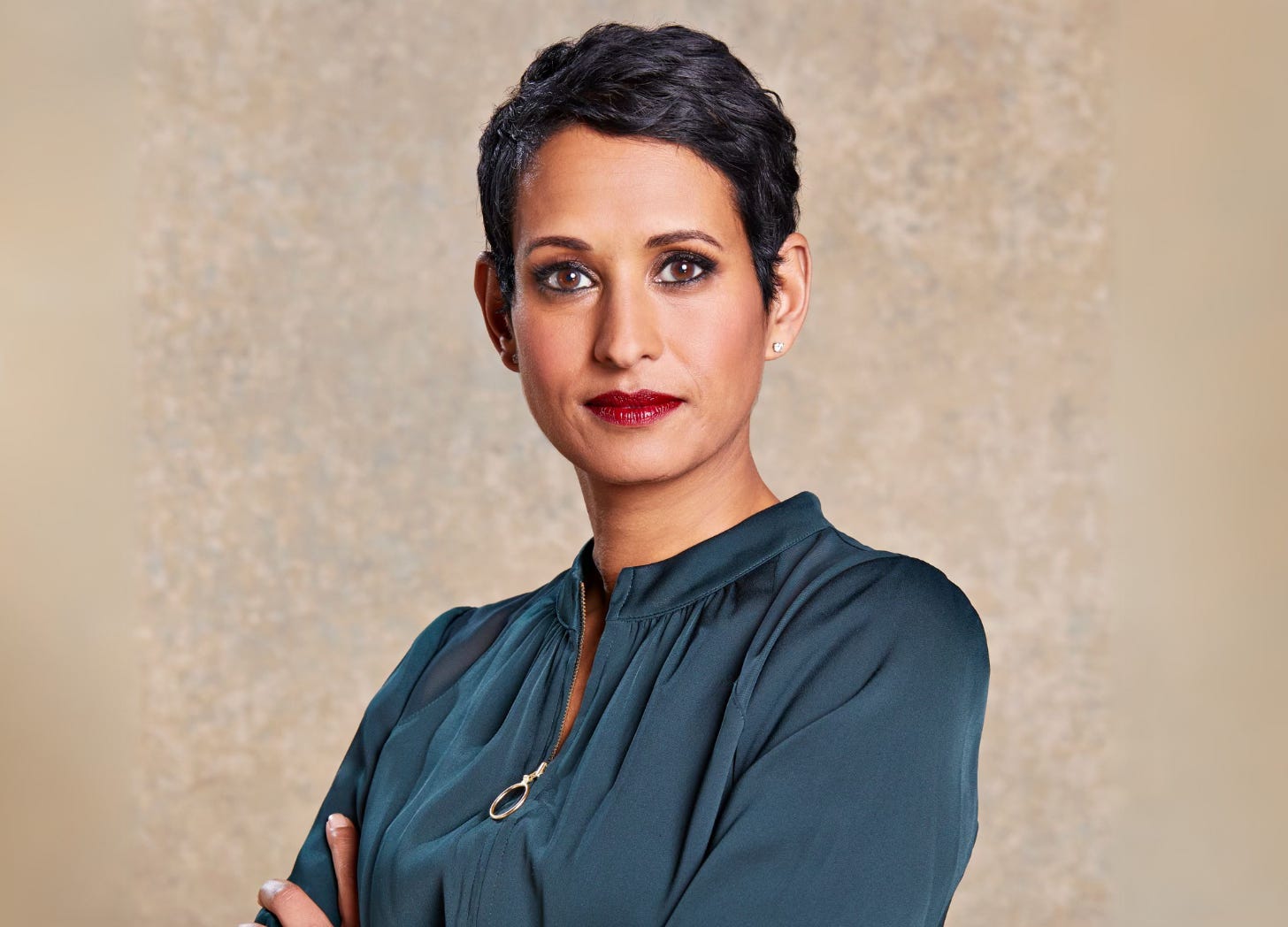BBC’s Naga Munchetty: Women are gaslit about their health. I'm among them.
Women know their bodies but their concerns aren’t respected, Munchetty writes in an extract from her new book, It’s Probably Nothing.
By Naga Munchetty, BBC presenter and journalist
It feels as if women are doing something wrong, almost criminal, when we fight for ourselves. Yet we often have to battle to be heard, which can be both exhausting and overwhelming.
In 2021, the Department of Health and Social Care launched a call for evidence to inform the government-led women’s health strategy for England.
Are you, like me, asking why it took until 2021 for this to happen?
Nearly 100,000 people got in touch to share their experiences and personal views, some on behalf of their loved ones. It would later emerge that 84 per cent of those respondents reported that, on more than one occasion, their concerns had been dismissed by healthcare professionals. According to the report: “Tens of thousands of examples were submitted. Based on our thematic analysis of this data, ‘not being listened to’ appears to manifest at all stages of the healthcare pathway. Specifically, many women told us:
Their symptoms were not taken seriously or dismissed upon first contact with GPs and other healthcare professionals.
They had to persistently advocate for themselves to secure a diagnosis, often over multiple visits, months and years.
If they did secure a diagnosis, there were limited opportunities to discuss or ask questions about treatment options and their preferences were often ignored.”
Women know our bodies. We know when something isn’t right, and that knowledge needs to be respected. So many women have been ignored or felt gaslit, made to feel as if it’s all in their head. The role of the medical profession is to help, to relieve pain and to cure it when possible. That will leave us to be as we are meant to be – brilliant. Able to contribute to and enhance society. The best versions of ourselves.
The point of my new book, It’s Probably Nothing, is to use the testimonies and experiences of women and men that I’ve interviewed to illustrate common problems with getting help, and to uncover what you need to know and ask for when advocating for yourself and your loved ones.
From personal experience and from talking to other women, we often don’t take the time to prioritise our health because our lives are full, putting others first. We are too busy and exhausted to go through the painstaking process of asking for help when we strongly suspect that we’ll be met with pushback from professionals.
As a woman, I have become increasingly frustrated about the lack of respect given to women’s health, and this has been exacerbated by my personal experience. In fact, I’d go so far to say find me a woman who has never had to fight to be heard, or dismissed when she has expressed concerns about her wellbeing, and you’ll find it almost impossible. Too often women have been told that they are worrying about nothing, that the symptoms they describe are normal, that they should just accept that all women ‘go through it’ and that therefore the expectation for them is to endure poor health.
Related articles
The 2024 Women and Equalities Committee report into women’s reproductive health conditions concluded that: ‘Women are being told symptoms such as heavy, painful bleeding and incontinence are “normal”, that they are either too young to have a condition, or too old to expect treatment. As a result, women and girls are making repeat GP visits and ending up in A&E as their conditions worsen and become more complicated to treat.’
I have heard heartbreaking stories from women who have been left in extremely debilitated conditions because of health problems and symptoms that have been dismissed or ignored. Capable, smart and strong women who have been left to feel helpless and in despair; left to live with pain, misery and fear and with conditions that have proven to be life-changing – for the worse.
It’s time this stopped. Even something as simple as listening can make a world of difference.
Just one example of this is a GP who noticed my smear test had blood in the sample. I already knew why, as the speculum being used was causing me a disproportionate amount of pain and discomfort. It was because she really listened that I was finally offered a child-sized speculum, meaning I no longer dread that check-up. One size really does not fit all.
Dame Lesley Regan, a doctor and the UK government’s first women’s health ambassador for England, has made it her mission for women to have timely access to diagnoses and treatment, arguing that female health issues have been an ‘afterthought’ and sidelined for too long. Over the past few years, there have been more conversations about women’s health, which is welcome and very much needed. Campaigners such as Davina McCall have shouted from the rooftops about menopause awareness. The taboo of women talking about their bodies has been explored with empathy by Nighat Arif in her book The Knowledge.
As a result, more women are talking openly about their health issues and concerns with each other and sharing information gleaned through their own experiences. It’s almost as if we need to help each other in this way when professionals aren’t listening to us.
I want to empower women, and those who love women, to advocate better for themselves. We are all trying to do our best – and we should have the tools at hand to be empowered to do that.
It’s Probably Nothing: Critical Conversations on the Women’s Health Crisis (and How to Thrive Despite it) by Naga Munchetty is published by HarperCollins, and will be released on 8 May.






